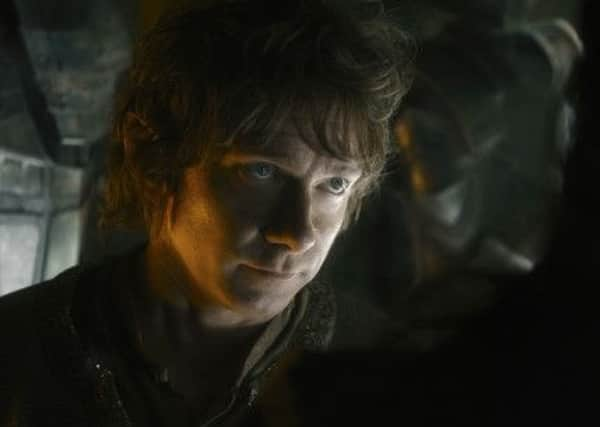Interview: Peter Jackson on The Hobbit’s final chapter


For the entirety of the shoot of The Hobbit’s three chapters, director Peter Jackson would be plagued by the same nightmare. He would be lying in his bed surrounded by a film crew waiting to be given instructions.
“I don’t know what movie I’m actually making,” he says. “I don’t know if there’s even a script! They’re all standing there wondering and wanting information from me. I’m tired and I can barely think straight. It’s hell.”
Advertisement
Hide AdAdvertisement
Hide AdOne can appreciate some of the stress and strain that goes with making a movie.
That stress is magnified mightily when one considers the scope of the Middle-earth films – a nine-hour plus story shot in its entirety over 266 days – and magnified further when dealing with the expectation and anticipation around The Hobbit trilogy.
“Every time I start a movie I have a recurring nightmare,” adds Jackson. “It starts like clockwork on the first day of shooting and it’s every night until the last. Then it stops. I’m on set every day and then as soon as I’m asleep on the set again as well!”
It’s an indication of just how much of Jackson’s life has been swallowed up by his double trilogy of JRR Tolkien’s tales. Filming the series was a long slog, but not as long as the tortuous route to the screen.
Advertisement
Hide AdAdvertisement
Hide AdIt is only via a series of interlinked quirks of fate, accidents and sheer blind luck that Middle-earth made its way to cinema screens.
Close on 20 years have elapsed since Jackson and co-writer Fran Walsh made their first phone call over what would eventually become a six-part series. It was a simple pitch to US super producer Harvey Weinstein.
If Weinstein could secure the rights to Tolkien’s books then Jackson and Walsh would make The Hobbit as one film and The Lord of the Rings as two movies back-to-back.
“That was our big, grand plan and then 17 years later it’s sort of become six movies,” says Jackson.
Advertisement
Hide AdAdvertisement
Hide Ad“We did it the wrong way round. We did The Lord of the Rings first. The Hobbit was gonna be two movies and then it was three. It’s all very weird. It’s not within your control. It’s circumstances and fate pushing you around. As chaotic as it was in the sense that the orders were being changed around, all the time I was thinking that this was going to be a series of films.”
But on finishing The Lord of the Rings and receiving a bunch of Oscars including Best Picture in 2004, Jackson announced he would not make others in the series.
Instead the directing chair was to be occupied by Mexican auteur Guillermo del Toro. Then, after scripting and lengthy pre-production work, del Toro stepped down.
Jackson was back in, walking the landscape of hobbits, elves, orcs and wizards once more. Fans were thrilled, though less so when the first Hobbit movie came out in a high-frame format that resembled a TV documentary. Jackson listened to the criticism and went back to the drawing board.
Advertisement
Hide AdAdvertisement
Hide Ad“I figured out a lot of little tricks to make it look less like the video thing,” he reveals.
“The second and third Hobbit movies [have] more of a textured look, which I regret I didn’t do in the first Hobbit but it took a while to figure out. It’s important that filmmakers look at technology and think how we can use it to make that experience in the cinema a little bit more exciting. Audiences for movies are beginning to dwindle. It has become a very serious issue.”
The legacy of his movies is what Jackson focuses on now that the responsibility for making them has passed. Sir Ian McKellen points out that the films play out as one extended tale.
“Peter has made a series of classic films. It’s not a franchise,” he says emphatically. “It’s a series of stories that all link together.”
Advertisement
Hide AdAdvertisement
Hide AdJackson doesn’t enter into the debate on what constitutes a classic. Instead he looks to his audience.
“Any film is your responsibility because you’re spending money that’s not yours, so you’ve got to be responsible for that,” he muses. “I also feel very responsible for the fact that you’re trying to entertain people.
“And for me utter failure is to make a film that people go to but that they hate.
“They pay their money for something they don’t like. I’m sure there are people that have seen these movies that don’t like them but from what we can see the majority of people enjoy them. So for me that’s why I want to give people a good time at the movies.The one thing that I’m very proud of is that when people do see the six films as a series in the right order they’ll sort of sense that there was some vague design behind it all.”